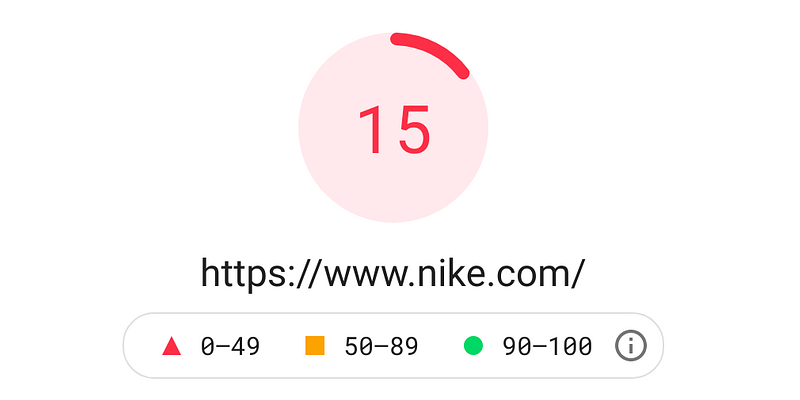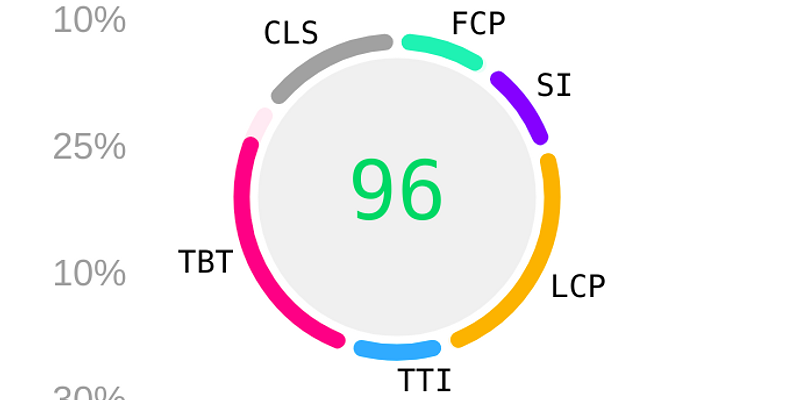PageSpeed: Does It Actually Matter? - Part 1
Who cares and why so much controvery?

Long answer: Yes, but maybe not for the reasons you expect.
By the way, this is part of a series on Google PageSpeed!
This issue is such a flame war these days. People seem to fall into several camps:
- Those in denial
- Those that think it matters for customer experience (CX) but don’t think that Google PageSpeed Insights is a lost cause
- Those that see a low speed on a dashboard and will do anything to get that score to 100
- Those that are a household brand name -- and don’t care
First the denial crowd....
While no one knows the exact ramifications of Google’s Web Vitals on search ranking, we do know that speed is correlated to better conversions and a better experience in general. For Millennials and younger, we get a bit of endorphin hit when a site loads fast. I have fiber that gives me downloads at 917.6 MB/s., but even having a fast pipe to the internet doesn’t fix slow sites. I don’t think I will influence those in denial - they are happy to exist as they are, at the level they are.
Customer Experience is all that matters....
We largely agree here. Where this crowd gets it wrong is the claim Google PageSpeed Insights is garbage and “insert your favorite tool here” is much better. So the one search engine, that the vast majority of people use, sets a standard and you are going to ignore it?!? Just because you are loading the YouTube JS library on your Contact Us page, even though there is no video on that page, and Google (who owns YouTube) says their own library is slowing your site down isn’t their problem. The problem is yours.
So you want to get a 100 score?
This crowd suffers from some of the same ailments as the previous group for different reasons. They are both fixated and don’t take time to understand the nuance of the Google PageSpeed Insights. The "lost cause" group get one thing right - that you don’t have to have a 100, but I do think it is reasonable to pass Core Vitals and not have a mobile score of 12 or 26! The "lost cause" group gets another thing right - if you have a fast site, but your site sucks, then what is the point. People aren’t going to love your site if it is fast, but they don’t see the point or purpose of your site.
Nike, Gymshark, or <insert name> site has a slow site, so I don't need one either!
This baffles me, because they (Gymshark, etc) have the latitude to fix it (I would think). But on the other hand, they are so big of a name it doesn’t matter for 2 reasons: 1) they have already made it to the top and 2) their customers already know how to get to them, i.e. directly. In the end, their massive amount of traffic keeps them high in the search results, and people know how to find them anyways.
So why does this matter at all?
The context for this is that Google can use page speed to determine search results and ordering. So not only do you have to have good content from a search engine aspect, from a user perspective, and now from a speed aspect. This is a bit of a big deal, because most sites out there have pretty abysmal load speeds, at least judged by Google PageSpeed. But regardless of our lack of choice in the matter, this is a tool. You can use it to get a head or fall in the middle of the bell curve with the rest of the pack.
What tactic should I take?
We largely agree that customer experience overrides all. Why? Because it takes it all onto view. Page speed and search results are part of customer experience. If people can't find you on search results because your site is so slow you come up on the 500th page, then that isn't good. If your customer hits your site and gets frustrated due to slow speed or items shifting around on the page, then that is bad. If your site is fast, but doesn't have either the content or features expected, then that is bad too.
Our thought is that you need to look at your store, your e-commerce business, from your customer's perspective. Try to understand their preferences and match them the best that you can!
What should I do next? Read the next article: What Causes Slow Speed?

